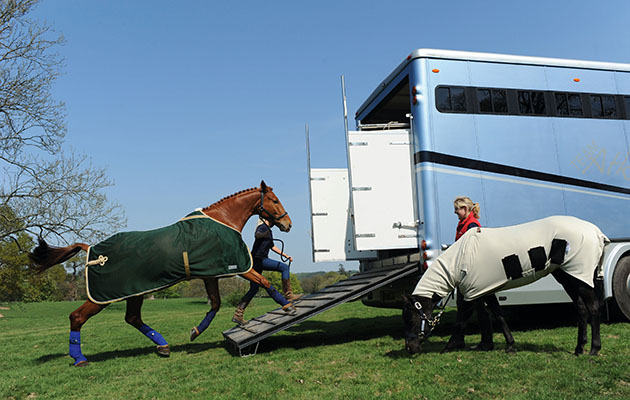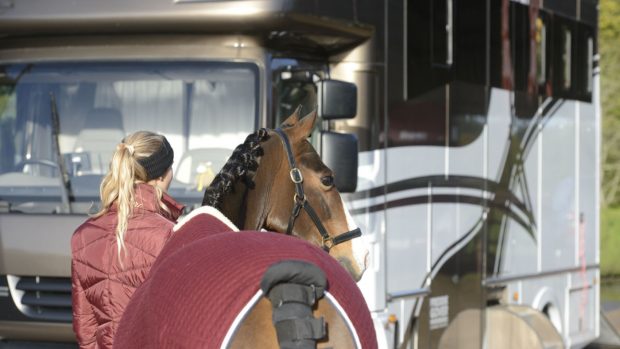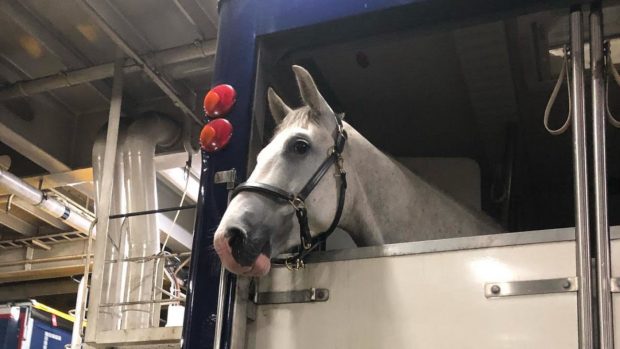Deciding what horsebox insurance you need might fill you with dread, but here's everything you need to know to get you up to speed before you sign on the dotted line
Insurance for a horsebox is a legal requirement and there are a number of policy options depending on the type of vehicle you have and how you intend to use it. It’s important to pick the right policy, as if invalid, any claim will not be honoured. So the first rule is check your policy documents to make sure you have bought the policy that contains all the aspects of cover you need.
The good news is that there is plenty of information available to guide you and equestrian insurance specialists like SEIB, KBIS, Shearwater and The Insurance Emporium have dedicated experts and a range of policies. There are also comparison websites but you need to make sure that you are comparing like with like and that each quotation has the cover you need. The cheapest is not always the best value.
When you look for insurance, make sure you are clear on what category of driver will be operating the horsebox and exactly what you are using the horsebox for. Any breach of the regulations will invalidate your insurance.
DVSA (Driver & Vehicle Standards Agency) has a useful online guide that clarifies the various categories of operators’ licence. This is particularly important if you intend to use the horsebox as part of your business or for reward. This will affect the type of insurance policy you will need to buy.
Breakdown cover is an important consideration if you don’t have good back-up and someone who can come out and rescue you when you have the horse on board. If you have to pay for recovery, this can be very expensive.
What type of horsebox insurance cover?
Fully comprehensive will cover you if you have an accident and pay for your repair bills if it’s a valid claim. It is usually the most expensive but gives you the greatest cover and is the most popular. While policies vary, it will usually cover damage caused to the vehicle by the horse, vandalism and windscreen damage.
Third party fire and theft policies can be cheaper but will usually only cover the costs of the other party if you have an accident which is your fault and loss through fire or theft. You will have to pay for repairing your own vehicle.
Neither kind of policy will cover injury to the horse during transit. You will need additional horse insurance for that.
If you use your horsebox as part of your business you must declare this to your insurance company and purchase the appropriate business policy. For example, if you are a breeder showing your horse with a view to increasing its value, this may class as business use. Or if you are a professional rider transporting to shows and any winnings are part of the business, then you will need a business policy.
If you intend to transport horses for a fee or hire out the lorry, you will need a hire and reward policy.
What about horse trailer insurance?
If you have a trailer rather than a horsebox, then you will legally need to have insurance on your towing vehicle, but check the small print to see what your car policy covers in terms of towing. While it may give you some cover while the trailer is being towed, it is unlikely to cover theft of the trailer, nor cover to get your horse safely home if your towing vehicle or trailer suffers damage or a breakdown.
“As with many aspects that come with owning a horse, buying a trailer is likely to be another big investment in what already has become an expensive hobby,” says Francis Martin, CEO of The Insurance Emporium. “Nonetheless, while your vehicle insurance may cover your horse trailer for third-party liability, it’s wise to consider getting proper horse trailer insurance cover to safeguard it should something unfortunate happen to it.
“By getting specialist insurance, which is tailored to your needs, you could get cover against fire and theft, public liability, recovery, and even replacement hire – meaning if something untoward does happen you’ve got the cover to get you and your horse back on the open road before you know it.”
What are the age restrictions for cover?
Many insurance policies will have age restrictions for the driver. Most will allow drivers from 21 years upwards but it is important to check this. There are insurance companies who will cover drivers under 21, but you can expect to pay a higher premium.
Who can drive my horsebox?
“Most policies will allow you to insure more than one driver for your horsebox and have the option of adding others on for a fee. If you lend your horsebox to a friend, they would only be covered to drive the horsebox should they be named on your policy or you have an ‘any driver policy’. This can have restrictions so check your policy wording,” says John Gillingham, senior manager at Shearwater Insurance.
It’s useful to have other drivers named on your policy so in the event of an injury to you, they can take your horse home. It is your responsibility to check that anybody driving the vehicle does not have any adverse driving history such as accidents, claims, losses or conviction points.
What does the excess mean?
This is the amount that you will be liable to pay if you have to make a claim. For example, if you have an excess of £150 and are making a claim for £750 to cover the cost of repairs, you will only receive £600 from your insurer as settlement.
How can I keep the costs down?
The cost of insurance is affected by the value and size of the vehicle, its age and mileage and the level of cover required. Vehicles of over 7.5 tonnes will cost significantly more. A newer vehicle will attract lower premiums because the chance of breakdown is lower.
Brokers review their products regularly and if you have a high value horsebox it may be advisable to speak to them directly to get a bespoke quote.
It will be cheaper if you are the only person allowed to drive, but this is not always practical. Make sure you do not over-estimate of the number of miles you will do each year as this can affect the cost.
Can I travel horses I don’t own in my horsebox?
If you transport other people’s horses, providing you are not making a profit, this will still be classed as social, domestic and pleasure use so you will be protected. If you wish to charge more than basic fuel or running costs, you will need to contact DVSA to see if you need a transporting licence and then review your policy with your insurers to ensure you have the correct cover. You may need a hire and reward policy.
What if the horse damages my horsebox?
Most comprehensive insurance policies will cover this, but you will need to check the policy wording.
Are the vehicle contents covered?
Not usually. If you require this, talk to your insurer about extending your cover.
Do I need breakdown/roadside assistance cover?
This is very much an individual choice and depends on how long the journeys are you make and whether you have good back up with additional transport available.
Horseboxes tend to break down more frequently than other commercial vehicles because they are not used so often and tend to be built on an older chassis. Breakdown cover, which starts at around £125, should be with a specialist equine company who can not only repair your vehicle but also recover the horse and take it home if necessary.
Note that most breakdown policies exclude cover for punctures and blowouts if the vehicle does not have a functioning spare wheel on board.
Not all breakdown policies include home start as standard. Without home start you will not be covered for breakdowns within a certain vicinity of your address.
Some insurance companies, including SEIB and KBIS, have breakdown policies which have added extras such as key cover (if lost or stolen), a replacement driver (if the driver has been signed off as medically unfit to drive ie. after a riding accident) or insurance for a replacement driver if they have the appropriate licence, and misfuelling. Standard benefits to check for are home start, roadside assistance and recovery of horse, vehicle and passengers. SEIB also includes help if the vehicle gets stuck in sand or snow, flood or mud, plus recovery.
It is crucial to maintain your horsebox (even in the off season) as failure to do so increases the likelihood of a breakdown and could therefore increase your premium.
You may also be interest in…

7 things you really need to know about equine insurance

Subscribe to Horse & Hound this spring for great savings
Horse & Hound magazine, out every Thursday, is packed with all the latest news and reports, as well as interviews, specials, nostalgia, vet and training advice. Find how you can enjoy the magazine delivered to your door every week, plus options to upgrade your subscription to access our online service that brings you breaking news and reports as well as other benefits.




